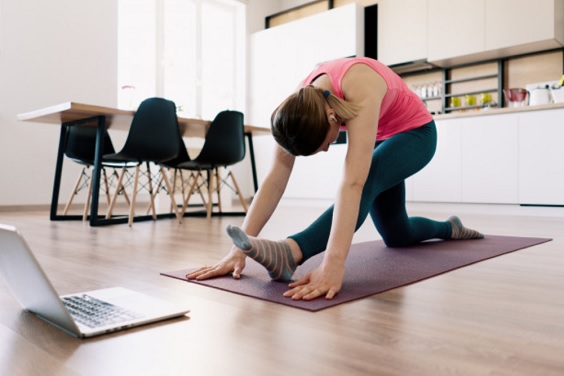DETAIL
Well-Being during Covid-19
 Stay at Home measures that are imposed on us due to the threat of Covid-19 may be trying for most and difficult to do. You may feel frustrated or bored, even lonely. Most of us may also be anxious or worried, concerned about your health or your family’s health, or concerned about what the future looks like ahead. Everyone reacts differently, but remember this situation is temporary, and for most of us, these distressing feelings will pass. Staying at home may be disconcerting, but by doing so, you will protect yourself and others.
Stay at Home measures that are imposed on us due to the threat of Covid-19 may be trying for most and difficult to do. You may feel frustrated or bored, even lonely. Most of us may also be anxious or worried, concerned about your health or your family’s health, or concerned about what the future looks like ahead. Everyone reacts differently, but remember this situation is temporary, and for most of us, these distressing feelings will pass. Staying at home may be disconcerting, but by doing so, you will protect yourself and others. Therefore, it is even more important to take care of our minds and body and keeping up our spirit even though we are physically distanced from our extended family and friends.
The following are some ideas to help you keep your mental wellbeing and surmount what you might feel while staying at home.
1. Plan practical things. Check out on how you can get household supplies and groceries. You may check the list of our tenants by checking our website: www.lippovillage.com or IG@lippovillage, for delivery services. If you need medicine, you might be able to order repeat prescriptions by phone, or online via website or app. You can also check your pharmacy about getting your medicine delivered, or ask someone else to collect it for you (online health consultation by Siloam Hospitals : Aido Health Support 08118481436)
2. Stay connected with others. Keep contact and maintain relationships with people you trust. It is good for your mental wellbeing. You can stay in touch with family and friends by phone, messaging, video calls or social media. Lots of people are finding the current situation difficult, so staying in touch is one way to overcome feelings of loneliness.
3. Look after your body. Our physical health has a big impact on how we feel. It can be easy to fall into unhealthy patterns of behaviour that end up making you feel worse. Try to eat healthy, well-balanced meals, drink enough water and exercise regularly. Do simple exercise and try to get morning sunshine with your family, but keep the distance.
4. Carry on doing things you enjoy. Take time to relax and make an effort to focus on your favourite hobby if it is something you can still do at home. Or, picking something new to learn at home. There are lots of free tutorials and courses online, even some like hosting online music concerts that you can watch. Keep your mind active.
5. Do not stay glued to the news. Limit your time for watching, reading or listening to coverage of the outbreak, including on social media. Set yourself a specific time to read updates or limit yourself to checking only a couple of times a day and the important thing is to use trustworthy sources.
6. Stay on top of difficult feelings. Concern about the outbreak is perfectly normal, however, some people may experience intense anxiety that can affect day-to-day life. Stay focused on the things you can control, such as how you act, who you speak to and where you get information from. Acknowledge that some things are outside of your control sometimes.
7. Look after your sleep. Good-quality sleep makes a big difference to how we feel, so it’s important to get plenty of it. Maintain your regular sleeping pattern and stick to good sleep practices.
Try to think about how you can adapt and create positive new routine and set yourself goals. If you are working from home, try to get up and get ready in the same way as normal, keep the same hours you would normally work. Life is changing for a while and you of course will see some disruption to your routine.
Remember, it is quite common to experience short-lived physical symptoms when you are anxious or low. Some of these like feeling hot or short of breath, could be confused with symptoms of Covid-19. If this happens, try to distract yourself. When you feel better, see if you still have the symptoms that worried you.
Mind your health. Stay well.
Source: www.nhs.uk











